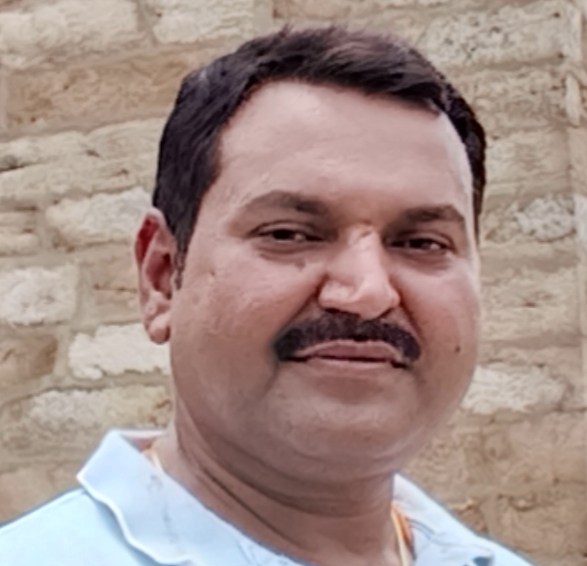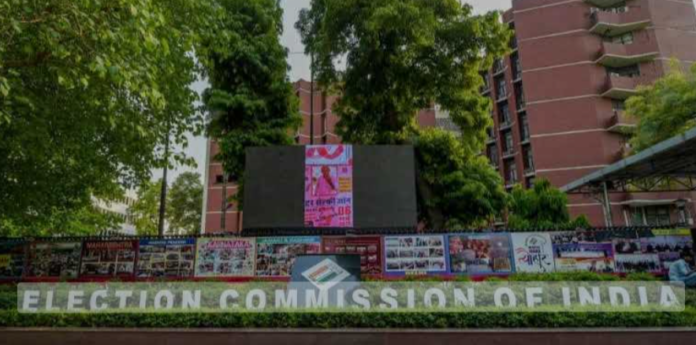Amit Pandey

India’s electoral process is a colossal undertaking, reflecting the vastness and diversity of the nation. The Election Commission of India (ECI), an autonomous constitutional authority, orchestrates this democratic exercise. However, the logistics of conducting elections in the world’s largest democracy are complex and resource-intensive.
The decision to conduct elections in multiple phases is often a subject of intense debate. The opposition parties, particularly the Trinamool Congress, have raised concerns about the necessity of a multi-phased election, suggesting that it could be a strategy to manipulate the outcome. A group of representatives, including four sitting Members of Parliament, approached the constitutional authority demanding a single-phase election with the deployment of central forces. Their rationale remains undisclosed, but it is speculated that they believe a single-phase election could reduce the potential for electoral malpractice. West Bengal and Odisha have different mindsets of voters who are interested in keeping a single-party government for a long time. When TMC was in opposition they often asked for multiple phases of elections because they believed that rigging was made by the Left Party. Now they are in power they urged the same what narrated by Left leaders at that time.
The stand of autonomous agencies has never changed by the demands of any political party so why do the political parties try to direct their demand? It is nothing but an eye-wash game or an agenda that will be used by them in their election campaign. False voters pose the biggest threat to democracy and challenge for commission to stop but how is it possible while such practices are tutelage by politicians? The Election Commission has an office in every state to listen to the problem regarding vote-related problems if any occur. They have different kinds of forms to enrol the voters in their list but they don’t have any machinery that categorises the person’s truth.
The ECI’s challenge in managing elections is exacerbated by its limited staff and resources. Initially, the commission lacked sufficient personnel, necessitating the borrowing of workers from various government organizations and even the deployment of advocates from the High Court. Despite the passage of time since India’s independence, lawmakers have not enacted legislation to provide the ECI with a dedicated workforce, making it difficult to meet the demands for a single-phase election.
The legacy of T.N. Seshan, a former Chief Election Commissioner, looms large over the current electoral process. Recognizing the issues plaguing Indian elections, such as the presence of ‘bogus’ voters, he implemented the voter ID card system to enhance the integrity of the polls. This move was aimed at curbing electoral fraud and ensuring that each vote cast was legitimate.
The ECI operates with constrained resources, which affects its ability to implement various measures necessary for a robust democracy. Despite these limitations, the commission has made significant strides in ensuring fair and transparent elections. However, the demands for a single-phase election remain a contentious issue, with the ECI needing to balance efficiency, resource allocation, and the integrity of the electoral process.
As of now, the partiality of the Election Commission (EC) has been a subject of heated debate and speculation, although no official declaration has been made regarding its partiality. Several instances and allegations have raised concerns among various political parties and the general public about the impartiality of the EC in conducting elections.
One aspect that has come under scrutiny is the handling of electoral processes, including the registration of voters, distribution of voter ID cards, and the management of polling stations. There have been reports of irregularities in voter registration, such as the inclusion of ineligible voters or the exclusion of eligible ones, leading to questions about the fairness of the electoral rolls.
Additionally, concerns have been raised about the EC’s enforcement of election rules and regulations. Some critics argue that the EC has shown leniency towards certain political parties or candidates while being strict or biased against others. Allegations of favouritism in the interpretation and application of electoral laws have further fueled suspicions of partiality.
Furthermore, the EC’s response to complaints and grievances filed by opposition parties and candidates has been a point of contention. Critics argue that the EC has been slow or unresponsive in addressing concerns raised by opposition parties, leading to a perception of favouritism towards the ruling party.
Despite these allegations and concerns, it is important to note that the EC operates within a complex political and legal framework, and accusations of partiality must be thoroughly investigated and substantiated before any definitive conclusions can be drawn. Until an official declaration is made regarding the partiality of the Election Commission, these allegations remain speculative and subject to further scrutiny and debate.
The debate over the number of phases in which elections should be conducted in India is emblematic of the broader challenges faced by the ECI. While the commission strives to conduct free and fair elections, it must navigate the complexities of India’s political landscape, resource constraints, and the enduring quest for electoral integrity. The path forward requires a nuanced understanding of these dynamics and a commitment to strengthening the pillars of democracy.


